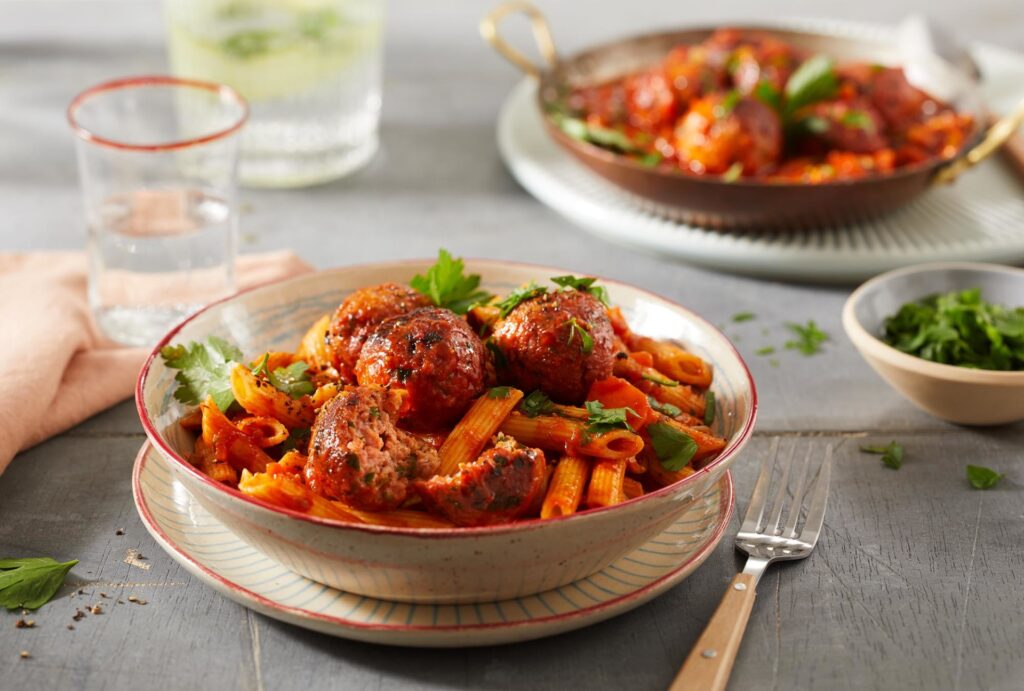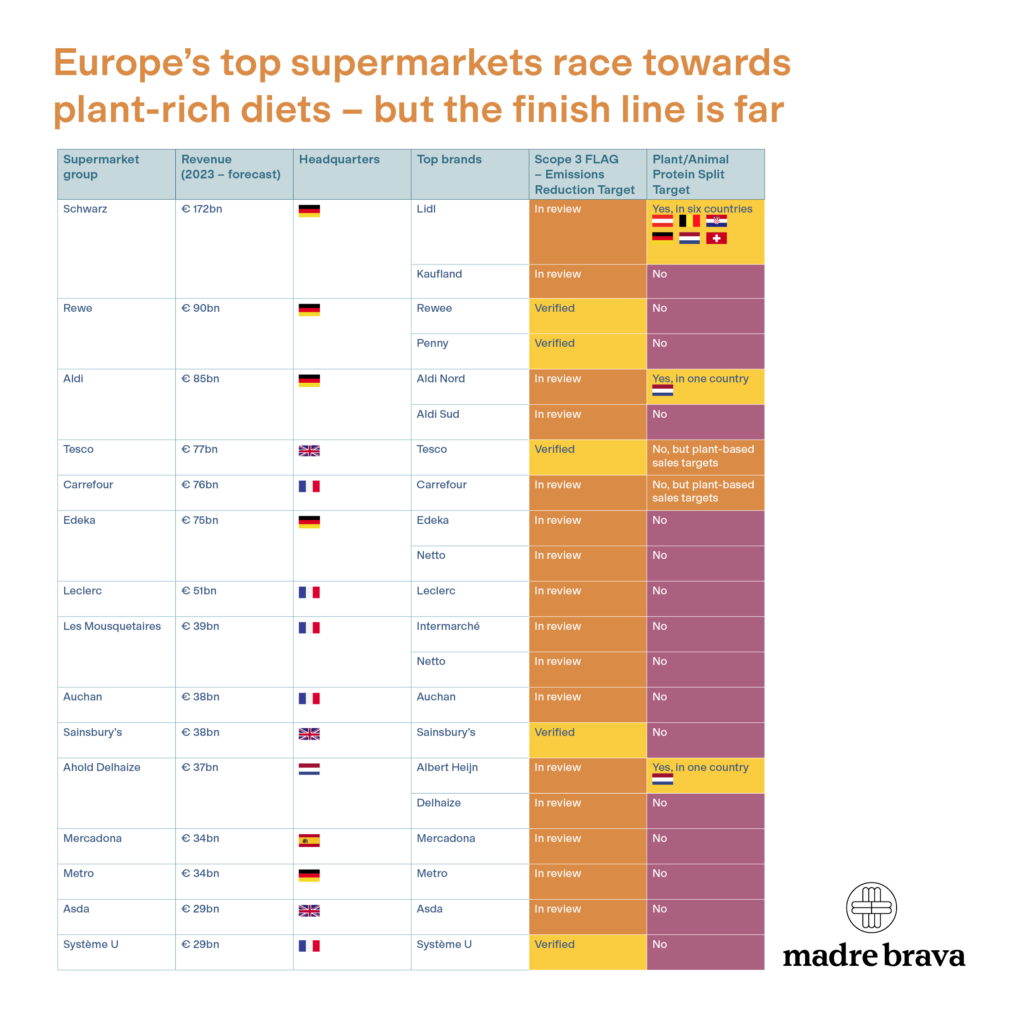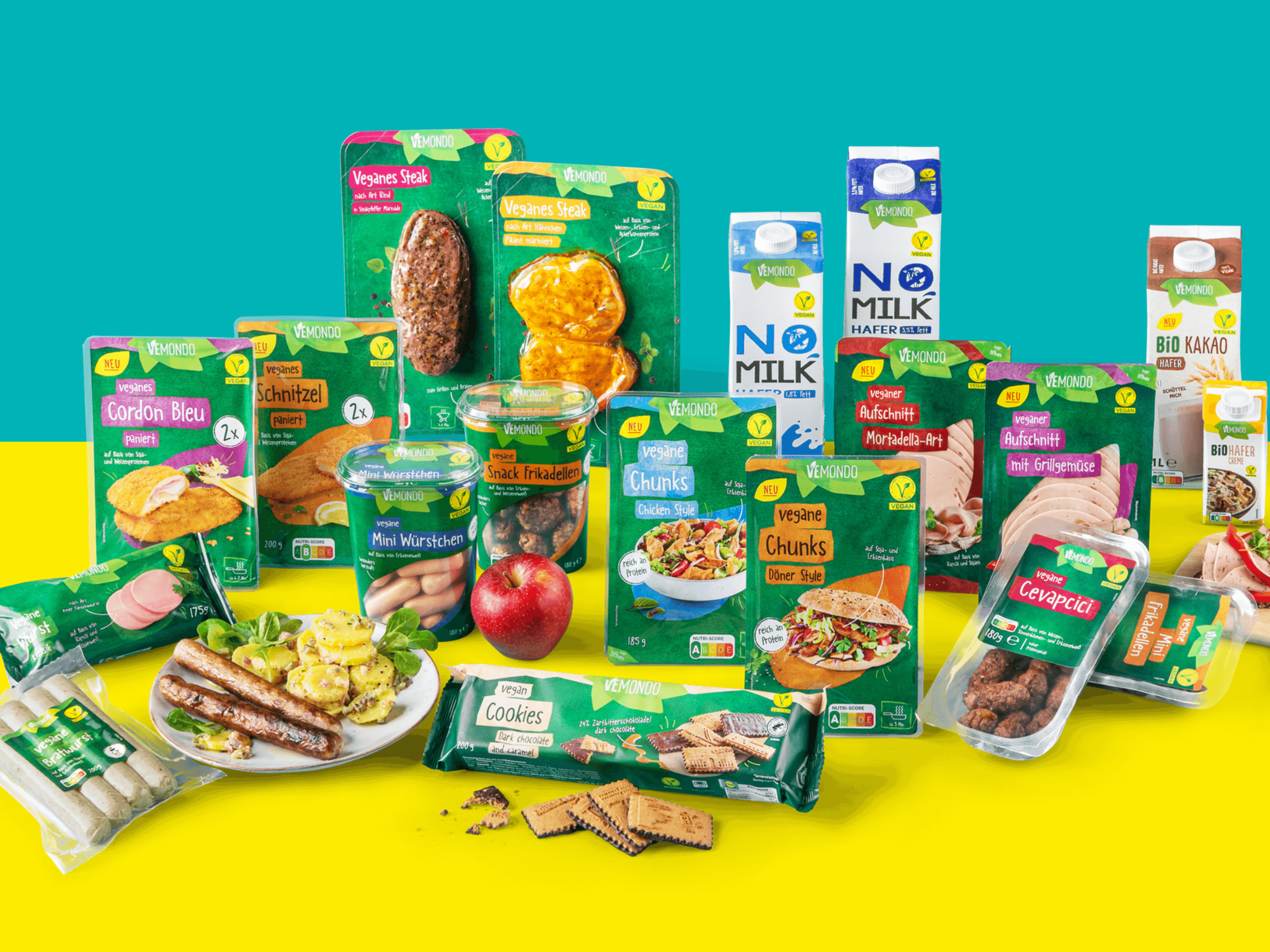Lidl’s Climate Target Makes It A ‘Frontrunner’ in the Protein Transition, But Speedier Action is Needed
5 Mins Read
German supermarket Lidl has extended its target to reduce Scope 3 emissions, which nearly make up its entire climate footprint. But experts say the shift to plant proteins needs to be accelerated.
European retail giant Lidl has revised its climate targets as it moves towards its net-zero target for 2050, with the move heaping pressure on rival grocers’ sustainability roadmaps.
The discount supermarket is aiming to cut its scope 1 and 2 emissions – direct emissions emanating from business-owned sources and energy consumption – by 70-80% by the end of the decade (depending on the country). In the UK, this is at the lower end now, coming down from the previous target of 80% reductions, thanks to a new shipping line).
However, the real progress is in the scope 3 emissions goal. These include indirect emissions from the entire supply chain, occurring from products that the company sells. They’re responsible for virtually all of Lidl’s emissions. “That is where the retailer needs to concentrate the vast majority of its reduction efforts,” says Florian Wall, senior associate for Germany at think tank Madre Brava.
“Independent of a 70 or 80% reduction target, we should not lose sight of the bigger picture here: a whopping 99.65% of Lidl’s emissions are scope 3, of which at least half come from the production of meat and dairy,” he adds.
Lidl is aiming to cut its scope 3 emissions by 35% in the next decade, and reduce its emissions from agriculture, forestry and land use by 42.4%. As part of this shift, the retailer is aiming to become the first retailer to align its plant protein offerings with climate targets.
‘Much more proactive approach’ needed

In the last year, Lidl has marginally increased the share of plant-based meat sales from 11.1% to 11.8%, and vegan dairy from 6.1% to 6.6%.
In 2023, the company also committed to doubling the share of its plant-based meat and dairy sales by 2030. But Madre Brava has previously called upon Lidl to set a global target to expand the ratio of plant-based proteins sold to 60% by 2030 (it has already done so in the Netherlands).
The retail chain has also lowered the prices of plant-based analogues to match their conventional counterparts (or even beat them on price) in Germany, Denmark, Hungary, Austria, Belgium, and the Netherlands. It has positioned these products next to conventional meat and dairy items on shelves as well.
“A big part of this shift is making the healthy and sustainable choice the easy choice for the consumer. We know from our own consumer survey in Germany for example, that 63% of consumers are willing to reduce their meat consumption,” says Wall, explaining how these measures have helped Lidl cater to the country’s flexitarian population.
“To make this change mainstream, Lidl must focus on the mainstream: the flexitarians generally open to reducing their meat consumption but needing support. Lidl lowered their prices for their private label plant-based products by 23% – and instantly saw a demand increase of 30%,” he adds.
But while Lidl has made some progress here, Wall says its efforts must be accelerated: “Lidl measures its protein ratio for two categories: protein food (mainly meat) and dairy. If Lidl continues with its current rate of change, it would hit its 2030 protein ratio target in the dairy category, but not in the protein food (meat) category.
“Lidl, like any food retailer, has a clear impact on consumer choice, through the food environment it creates. The good news is, there are many levers it can pull to accelerate the change, and it’s worth mentioning them. They include price, placement, promotion, transparency, consumer education, plant-based default options, portion size, faster go-to-market cycles, wording (labelling), and product reformulation.
“Several retailers across Europe are experimenting with these measures. Lidl could take a much more proactive approach here.”
Lidl piles pressure on Rewe

Despite the need for more rapid action, Lidl is still a leader in the retail sustainability race in Europe. “At the moment, [Lidl is] walking, rather than running towards its destination, but others are standing still,” says Wall.
“Lidl is now the frontrunner on both fronts: their commitment to shifting sales to more plant-based protein is essential to meet their scope 3 emissions targets, and their focus on the Planetary Health Diet is positive,” he suggests.
The scope 3 emissions target is in line with that of the Rewe Group, which last year became the first German supermarket company to set a full-scope target. However, there’s a big gap in their approaches, which has left the latter “playing catch-up”.
Livestock farming takes up two-thirds of Germany’s food-related emissions. Lidl acknowledges that meat and dairy play a major role in its scope 3 emissions and, unlike Rewe, it has made the necessary moves by committing to the protein ration.

“At the moment, Rewe’s approach is as much use as a sat nav that tells you the destination but not the directions,” says Wall. “A target without a plan is not really a target. We would urge them to publish protein diversification plans and targets. Without them, they can’t hope to achieve the reduction in emissions they are aiming for.”
He adds: “The best thing Rewe could do now to kickstart progress to meet its scope 3 target is to set protein diversification targets and follow some of the best practices from other food retailers when it comes to pricing and placement of plant-based alternatives.”
Edeka, Aldi and other retailers are set to publish their scope 3 targets in the coming weeks, and this could make for a “much healthier and more sustainable” supermarket landscape in Germany.
“Scope 3 represents a huge part of supermarkets’ overall emissions, and meat and dairy products represent a big part of scope 3, so frankly, no supermarket will reach their overall, or scope 3 emissions reduction targets without protein diversification targets,” he says.



